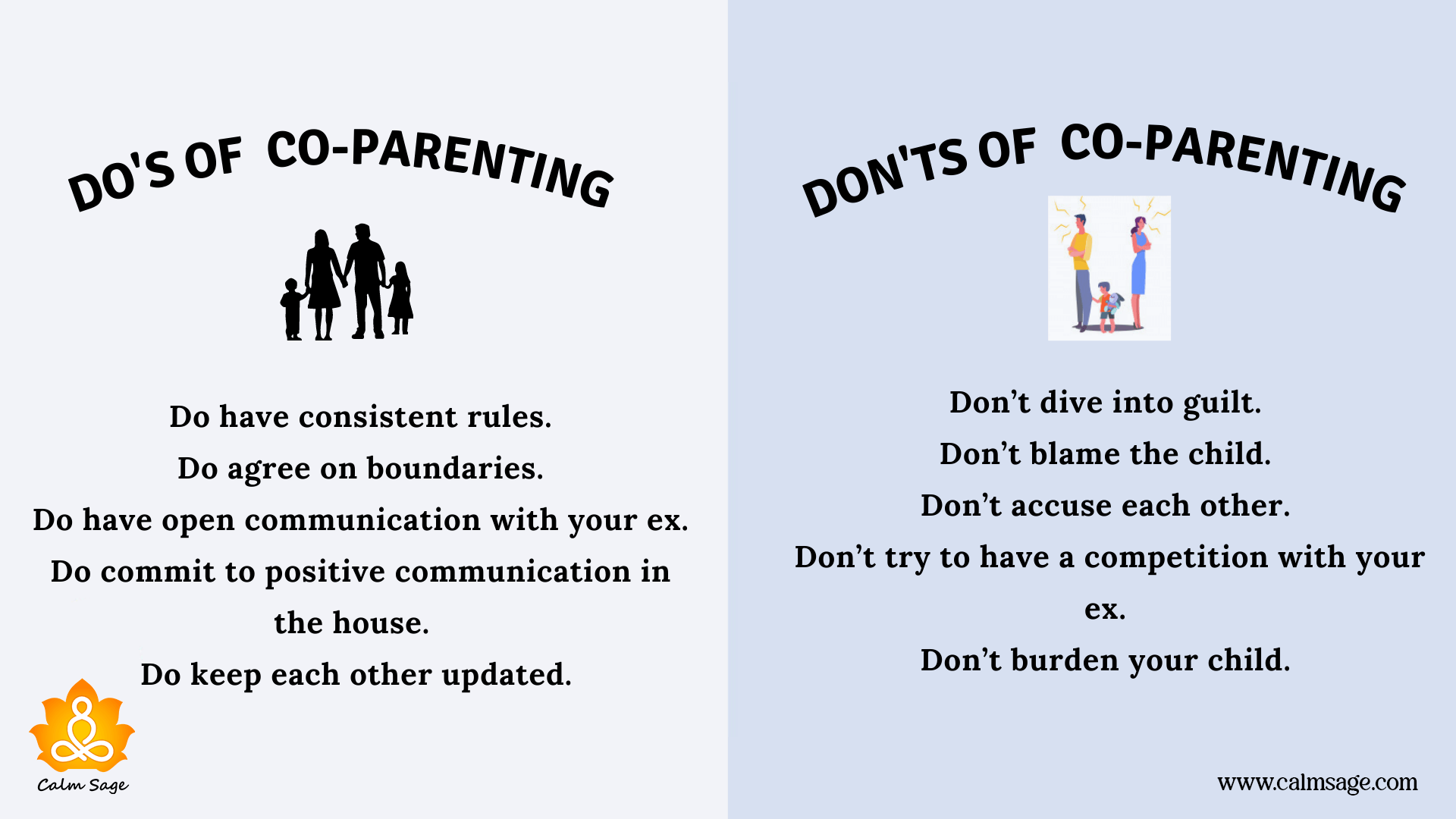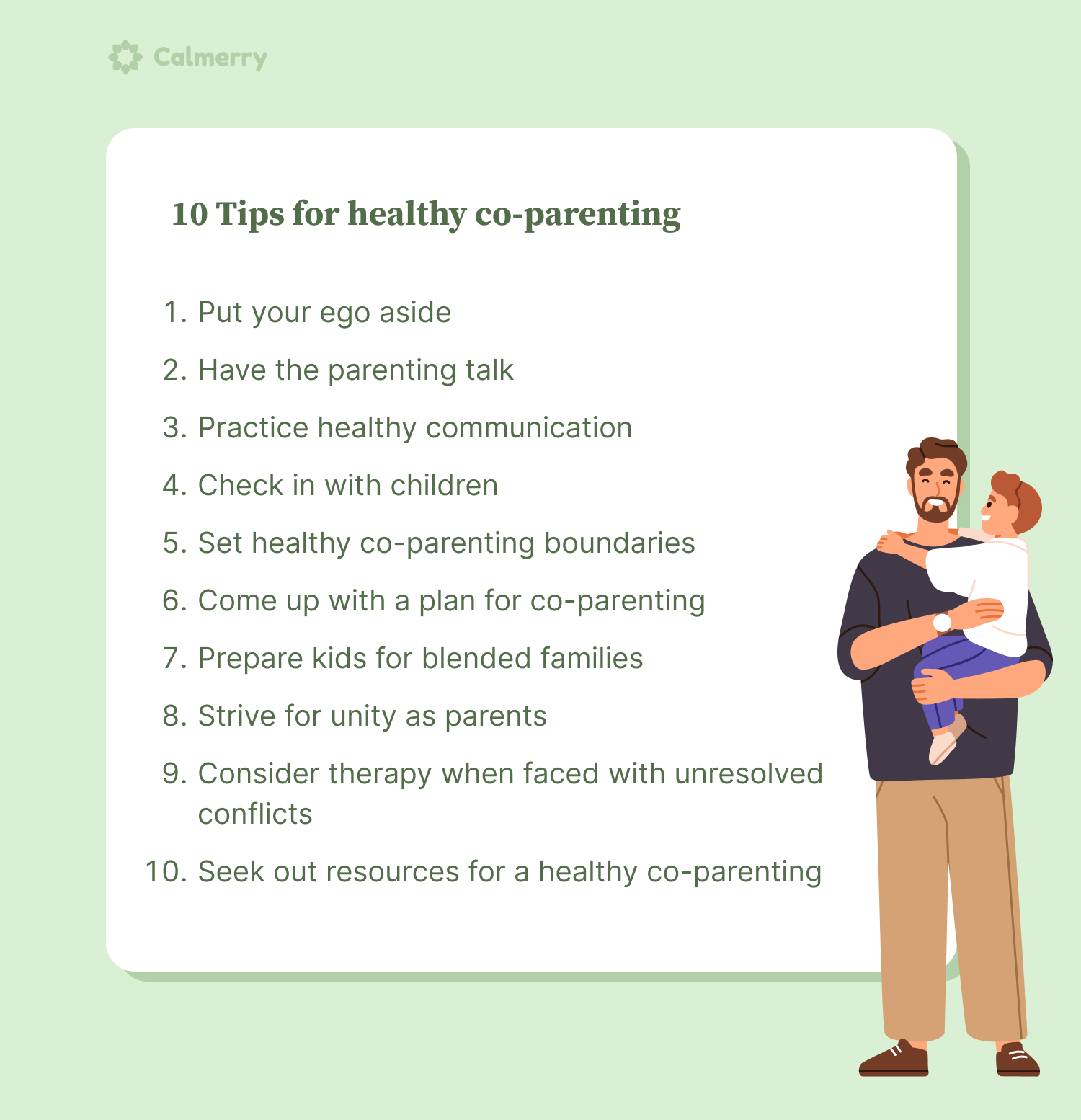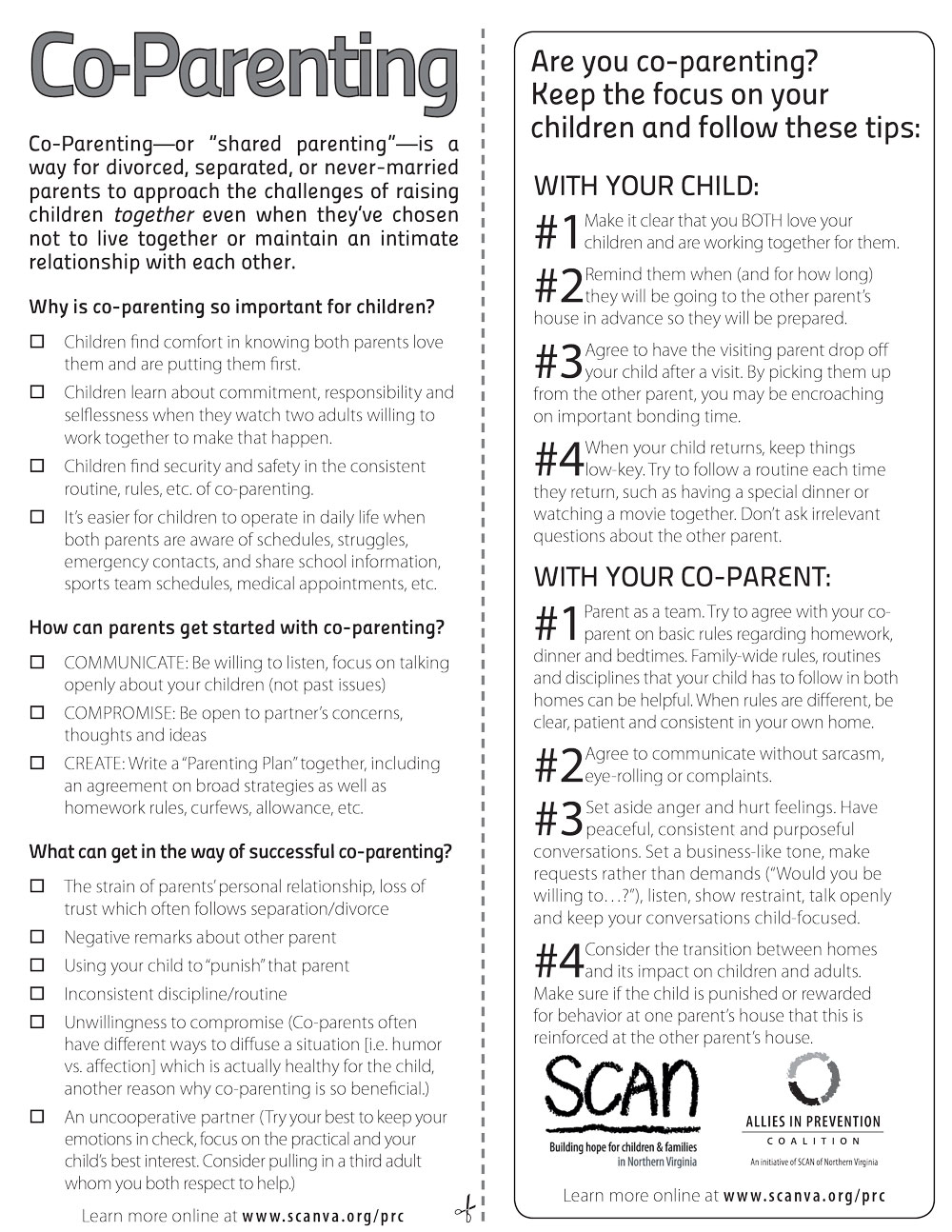Co-parenting means two parents share the responsibilities of raising their child. This often happens after separation or divorce.
Co-parenting aims to provide a stable environment for the child. It ensures that both parents remain actively involved in their child’s life. This arrangement can be challenging, but it brings many benefits. For example, it helps children feel secure and loved by both parents.
It also teaches them how to handle conflicts and relationships. Understanding co-parenting can help parents work better together for their child’s well-being. In this blog, we’ll explore what co-parenting involves, why it matters, and how to make it work effectively. Stay with us to learn more about this important aspect of modern parenting.
Introduction To Co-parenting
Co-parenting is a joint effort by separated or divorced parents to raise their child together. This approach focuses on the well-being of the child, ensuring they receive love and support from both parents. Co-parenting can be challenging, but it offers numerous benefits for the child and parents.
Definition Of Co-parenting
Co-parenting involves sharing parenting responsibilities after separation or divorce. It means both parents actively participate in their child’s life. This can include decisions about education, health, and daily activities. The goal is to provide a stable and nurturing environment for the child.
In co-parenting, communication is key. Parents must discuss and agree on important matters. They should also respect each other’s roles and contributions. This collaboration helps create a sense of security for the child.
Importance Of Co-parenting
Co-parenting offers several benefits for children. It provides consistency and stability in their lives. Children feel more secure when both parents are involved. This can lead to better emotional and mental health.
For parents, co-parenting can reduce stress. Sharing responsibilities means less pressure on one person. It also fosters better relationships between parents. They learn to work together for their child’s benefit.
Consider these key points:
- Improved emotional well-being for the child
- Consistency in parenting approaches
- Reduced parental stress
- Stronger parent-child relationships
In summary, co-parenting is vital for a child’s healthy development. It ensures both parents contribute to their child’s growth and happiness.

Benefits Of Co-parenting
Co-parenting is a collaborative approach where both parents actively participate in raising their children after separation or divorce. It focuses on ensuring the well-being and stability of the child. Co-parenting comes with numerous benefits for both children and parents.
Positive Impact On Children
Children thrive in a stable environment. Co-parenting provides consistency and routine. They feel secure knowing both parents are involved. This involvement helps them develop healthy relationships. Co-parenting also reduces stress and anxiety in children. They can focus on their growth and learning.
Emotional Support For Parents
Co-parenting offers emotional support to both parents. Sharing responsibilities eases the burden. Parents can rely on each other. This mutual support fosters better decision-making. It also allows parents to take breaks, reducing burnout. A healthy co-parenting relationship models positive behavior for children.
Co-parenting Arrangements
Co-parenting is a shared effort in raising children after a separation or divorce. The key is to create a stable, loving environment. Different families find different ways to manage this. Below, we will explore various co-parenting arrangements.
Types Of Co-parenting Plans
There are several types of co-parenting plans. Each plan suits different family dynamics.
- Bird’s Nest Co-Parenting: Children stay in one home while parents rotate in and out.
- Alternating Weeks: Children spend one week with one parent and the next week with the other.
- Split Week Arrangement: Children spend part of the week with each parent.
- Custom Plans: Tailored to fit the unique needs of the family.
Factors To Consider
Several factors influence the choice of a co-parenting plan. These factors ensure the plan meets the needs of the children and parents.
| Factor | Considerations |
|---|---|
| Children’s Needs | School, activities, and emotional well-being. |
| Parents’ Schedules | Work hours, availability, and flexibility. |
| Distance Between Homes | Travel time and convenience. |
| Communication | Ability to discuss and manage co-parenting issues. |
Choosing the right co-parenting plan is crucial. It ensures a stable, happy environment for children. Consider all factors and communicate openly with your co-parent.

Effective Communication
Effective communication is key to successful co-parenting. It fosters understanding and cooperation between parents. Clear and open dialogue can reduce misunderstandings. This leads to a healthier environment for the child. Here are some strategies to ensure effective communication between co-parents.
Open Dialogue Strategies
Open dialogue means sharing thoughts without fear. Both parents should speak freely. Active listening is crucial here. Listen to understand, not to respond. Use “I” statements to express feelings. For example, “I feel concerned when…” This reduces blame and encourages empathy.
Set regular meetings to discuss your child’s needs. These can be in person or over the phone. Keep a shared calendar for important dates. This ensures both parents stay informed and involved.
Conflict Resolution Techniques
Disagreements are natural in co-parenting. The key is resolving them constructively. Stay calm and respectful during conflicts. Avoid raising your voice or using negative language. Take breaks if emotions run high. This prevents escalation.
Focus on finding solutions, not winning arguments. Compromise is often necessary. Agree on what’s best for the child, even if it means meeting halfway. Seek mediation if conflicts are hard to resolve. A neutral third party can help find common ground.
Legal Considerations
Co-parenting involves shared responsibilities for children after a separation. Legal considerations are crucial to ensure a smooth process. Understanding your legal rights and obligations helps in creating a stable environment for the children. Let’s look at some important aspects.
Custody Agreements
Custody agreements are formal documents that outline how parents will share the responsibilities and time with their children. These agreements specify:
- Legal custody: Who makes major decisions for the child?
- Physical custody: Where will the child live?
- Visitation schedules: When will each parent spend time with the child?
Courts usually prefer joint custody, where both parents share responsibilities. A well-drafted custody agreement can prevent disputes and ensure clear expectations.
Rights And Responsibilities
Both parents have specific rights and responsibilities in a co-parenting arrangement. These include:
| Rights | Responsibilities |
|---|---|
| Access to child’s records | Providing financial support |
| Input in major decisions | Ensuring child’s education |
| Frequent and meaningful contact | Maintaining a safe environment |
It is vital to understand that both parents must work together for the child’s best interests. Clear communication and a cooperative attitude can significantly improve the co-parenting experience.
Co-parenting Challenges
Co-parenting can be tough. Parents must work together for their child’s well-being. They face many challenges. These challenges can affect the parents and the child. Understanding these challenges helps find solutions.
Common Issues
- Communication Problems: Parents may struggle to share important information.
- Different Parenting Styles: Each parent may have their own way of raising the child.
- Scheduling Conflicts: Coordinating schedules can be difficult.
- Emotional Stress: Parents and children can feel stressed from the situation.
- Financial Disputes: Money issues can cause arguments.
Solutions And Tips
Here are some solutions to help with co-parenting challenges:
- Effective Communication: Use clear and respectful language. Use tools like emails or parenting apps.
- Consistency in Rules: Agree on basic rules for the child. This gives the child stability.
- Flexible Scheduling: Be open to changes in the schedule. This helps avoid conflicts.
- Seek Support: Talk to a counselor or join a support group. This can help manage stress.
- Financial Agreements: Create a budget and stick to it. This reduces financial disputes.
Building A Support System
Co-parenting can be a challenging yet rewarding journey. Building a solid support system is essential. It helps reduce stress and offers emotional stability. This support can come from various sources. Let’s explore how family, friends, and professionals can assist.
Involving Family And Friends
Family and friends play a crucial role in co-parenting. They provide emotional support and practical help. Grandparents, siblings, and close friends can assist with childcare. They can also offer a listening ear when needed. Their involvement can make the co-parenting experience smoother.
It is essential to communicate your needs clearly. Let them know how they can help. This makes it easier for everyone involved. Building a network of trusted individuals creates a sense of community. It also ensures that your child has a strong support system.
Professional Resources
Professional resources are invaluable in co-parenting. Counselors and therapists can offer guidance. They help navigate complex emotions and conflicts. Legal advisors can assist with custody arrangements. They ensure that both parents’ rights are protected.
Parenting classes and support groups are also beneficial. They provide practical advice and a sense of camaraderie. These resources help parents feel less isolated. They offer new strategies for effective co-parenting. Utilizing professional help can make the co-parenting journey more manageable.

Long-term Co-parenting Success
Effective co-parenting requires effort and dedication from both parents. It means working together for the child’s well-being. The journey is long and may have many challenges. Success in co-parenting can be achieved with some key practices.
Adapting Over Time
Children grow and their needs change. Parents must adapt their strategies. Flexibility is essential. What works for a toddler may not work for a teenager. Regular communication helps in adjusting to new phases. Discuss what is best for the child as they grow. New activities and interests will emerge. Stay involved and supportive. This keeps the bond strong.
Maintaining Healthy Boundaries
Co-parenting does not mean giving up your own space. Respect each other’s privacy. Set clear boundaries. Personal time is important for everyone. Avoid discussing personal issues in front of the child. This ensures a healthy environment. Respect each other’s parenting styles. Consistency is key but allow for some differences. Balance is crucial. Keeping these boundaries maintains a respectful relationship. It helps in focusing on the child’s needs.
Frequently Asked Questions
What Is Co-parenting?
Co-parenting is when divorced or separated parents share the responsibilities of raising their child together.
How Does Co-parenting Work?
Co-parenting works by maintaining open communication, mutual respect, and a shared commitment to the child’s well-being.
Why Is Co-parenting Important?
Co-parenting is important because it provides stability, support, and a positive environment for the child’s development.
What Are Co-parenting Benefits?
Co-parenting benefits include reduced stress, improved child well-being, and stronger parent-child relationships.
Conclusion
Co-parenting can be challenging yet rewarding. It requires good communication and teamwork. Parents should focus on their child’s needs and well-being. Consistency and respect are key. Remember, it’s about working together for your child’s best future. Patience and understanding go a long way.
Keep learning and adapting. Your efforts will make a positive difference.

